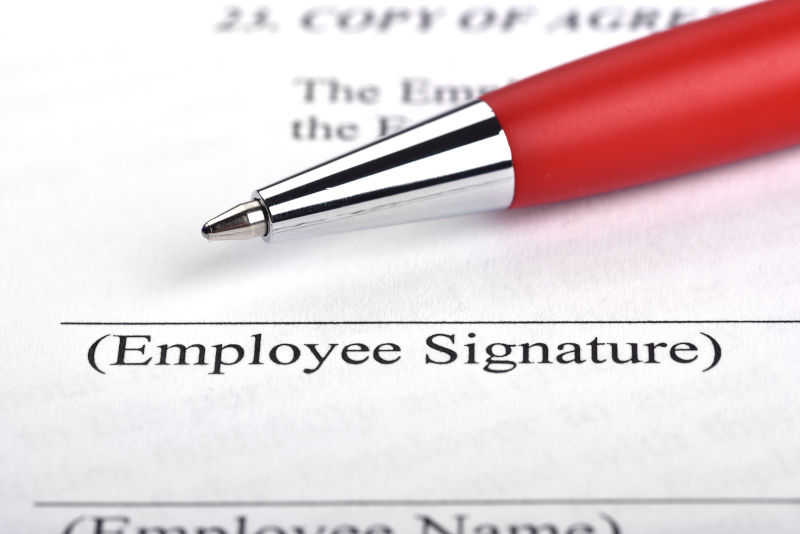This article was originally published in October 2019 and was updated in February 2024.
With the complications of modern life, there are many situations where you might want, or need, to change your working hours. But that means asking your employer, and that can be a daunting prospect, especially if you aren’t sure of your employment law rights.
This blog can help. Through common questions and examples, we’ll explain the legal rights which employees have when looking to change their working hours.
Incoming changes to the law
In July 2023, a new law was passed which will change some of the rights discussed in this article. This law is the Employment Relations (Flexible Working) Act 2023.
At present, the new law is not yet in force but the government has indicated that it is likely to take effect in early 2024 – possibly in April.
Throughout this blog, we will indicate which of the flexible working rights are set to change, so that you are aware of how the law currently stands and what it will look like in the near future.
And we will be keeping this article updated, so check back for more information.
Alternatively, if you would also like to know more about the law on the amount of hours you can work, and how many rest breaks you are entitled to, read our detailed blog here.
Do I have the right to ask for a change in working hours?
Every employee, who has been employed for at least 26 weeks, has the legal right to ask to change their working hours. This is known as the right to request flexible working.
It is a right to request to change your hours, not a right to insist that they be changed. But the law requires your employer to consider your request and deal with it in a sensible way.
Incoming changes to the law
The government has committed to removing the 26-week minimum employment requirement – allowing employees to request flexible working at any point in their employment if they wish, even from day one.
However, this isn’t written into the text of the new Act so it unclear when this will be introduced. It may come into force later than the other changes discussed in this article.
What changes to my working hours can I ask for?
The law states that you can ask for changes concerning:
- the number of hours you have to work;
- the times when you have to work; and
- where you have to work.
This means you could ask to work fewer hours in the working week by reducing the number of days you work or the number of hours you work on each day. You could also to ask to work from home on some or all of your working days or from another of your employer’s places of work.
Here are some examples of changes to working hours that you might ask for:
Compressed hours
Zara works 35 hours a week (working five 7-hour days). She is also doing a part-time degree. She would like more time off during the week to help with her studies but doesn’t want to lose any pay. Zara could ask to work the same number of total hours but over fewer days. This is called “compressed hours”. So, she could ask to work 8.75 hours a day over four days.
Part-time
Jamie works full-time. He would like to change to part-time hours, working 3 days a week instead of 5 so that he can look after his baby for two days each week when his partner returns to work.
Reduced hours on certain days
Fatima currently works 9.00am to 5.00pm, Monday to Friday. She would like to ask to change her hours on Mondays, Wednesdays and Fridays to 9.30am to 2.30pm, so that she can take her child to school and pick her up at the end of the school day. Her partner is going to do the drop-offs and pick-ups on Tuesdays and Thursdays.
Working from home on certain days
It takes Craig 70 minutes to get to work and home again at night. He would like to work from home 2 days a week to reduce the time he spends travelling to work each day. He can ask to do this.
Working only during school term time
Amber would like to spend more time with her children during the school holidays. She can ask to work “term time only” so that she has each school holiday off.
Disability
If you have a disability, changes to your working hours can sometimes be helpful – and the law offers more rights and protection to employees in these situations.
One part of this protection is that employers have a duty to make ‘reasonable adjustments’ to ensure that an employee with a disability is not placed at a significant disadvantage when carrying out their role. A change in working hours is one example of this kind of adjustment, although what is ‘reasonable’ will very much depend on the circumstances. You can find out more about reasonable adjustments here.
How do I ask for a change to my working hours?
When asking for a change in your working hours, it is important to do so in the right way – i.e. the way required by the law. If you don’t, your employer won’t have to follow the rules either, meaning you won’t be able to rely on those legal requirements to protect your rights.
When asking to change your hours, you need to:
- put your request in writing;
- put the date on it;
- say that it is a statutory request (this means that it is a request being made under the legal right to ask for changes);
- say what change you would like;
- say from when you would like the change to start;
- say whether you have made a request before and, if you have, when that was; and
- say what impact you think the change might have on your employer and how that could be dealt with.
You should give some thought to this last point as you can use it to attempt to lessen any concerns your employer might have about the change.
Incoming changes to the law
With the new changes to the law, this last requirement is being dropped. This means you will no longer have to provide your opinion on the impact which your altered working hours would have on your employer, or how they could deal with them.
What happens after I’ve asked for the change?
Your employer needs to consider the change and deal with it reasonably i.e. seriously and sensibly. If they are happy to make the change, they can just tell you that. They should also give you written notice of the change within one month of agreeing to it.
If they are not sure about the change, they may ask to meet with you to discuss it.
Some employers will have a policy on flexible working which they should follow.
I was ill the day my employer was going to talk to me about my request. Can I ask them to re-arrange the meeting?
Yes. It would be unreasonable if your employer did not re-arrange a meeting you could not attend due to illness.
But if you did not have a good reason for failing to attend and also do not attend the re-arranged meeting, then your employer is entitled to assume that you no longer wish to make the change. This is known as treating the request as “withdrawn”. The same applies to any appeal meetings. Your employer should tell you they are treating the request as withdrawn.
Can my employer say “no” to my request?
Yes – but only for certain reasons. The law says an employer can turn down a request for the following reasons:
- if any additional costs would be too much;
- if the change meant the employer could not deal with customers as well as before;
- if the employer could not re-organise work between its other staff;
- if the change meant the employer would need to recruit new staff because of the change but couldn’t;
- if the change would reduce the quality of the employer’s goods or services;
- if the change would have a negative impact on performance; and
- if there would not be enough work for the employee to do at the times the employee wants to work.
Incoming changes to the law
The new law will require your employer to consult you about your application before they are allowed to refuse it.
How long does my employer have to decide?
Your employer has 3 months in which to decide whether to agree to your request and to complete any appeal process which they may offer.
You can agree to a longer period if you wish.
Incoming changes to the law
Your employer’s decision period of 3 month will be reduced to 2 months under the new law.
My employer didn’t agree to change my working hours. Can I appeal?
Your employer does not have to let you appeal but an appeal is one way for the employer to show that your request was dealt with reasonably.
Can I ask again?
You cannot make a request again for another 12 months (starting from the date your request was made).
Incoming changes to the law
Under the new law, this limit of one request per 12-month period is being relaxed to allow up to two requests per 12-month period. However, you may only have one request ongoing at a time.
My employer hasn’t dealt with my request properly. What can I do?
If your employer does not deal with your request properly, bases their decision to reject on facts that are wrong, or treats your request as withdrawn when they should not have done, you can complain to the Employment Tribunal. Any claim should be made within 3 months, although this time limit can be affected by ACAS Early Conciliation.
You might also have reason to believe that your employer’s decision was discriminatory. For example, a woman wanting to work part-time due to childcare responsibilities might have a claim for indirect sex discrimination if her request is refused. See our page on Discrimination Claims for more information.
What will the Employment Tribunal do?
A tribunal cannot order your employer to allow the change but they can order your employer to think about your request again. It can also order your employer to pay you compensation of up to 8 weeks’ pay.
My manager referred to me as “trouble” after I asked to change my working hours and now won’t allow me to go on a training course. Can they do this?
The law protects you from poor treatment which may result from making a legal request to change your hours. If you have experienced this after your request, you can bring a claim in the Employment Tribunal. If you are successful, the tribunal may award you compensation. Again, you would have 3 months in which to make this claim (subject to ACAS Early Conciliation).
Contact us
With an honest and ethical approach to law, at Truth Legal you will have access to our specialist team of lawyers to help you with all your employment law matters. Our Head of Employment Law is Navya Shekhar, an employment law solicitor with over 10 years’ experience.
If you believe your request to change your hours has not been handled properly or that your employer has treated you poorly because of your request – call us on 01423 788538 or contact us here.
Watch Our Summary Video: Can I Change My Working Hours? Truth Legal Explains…
Further Reading
From one of the UK’s most read legal blogs.










